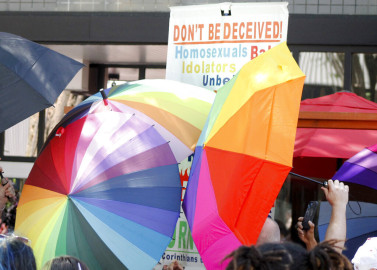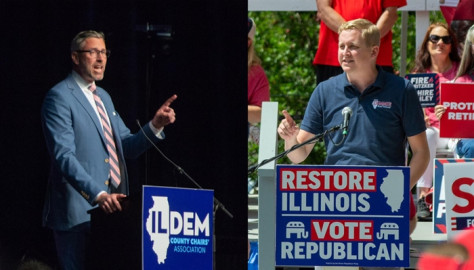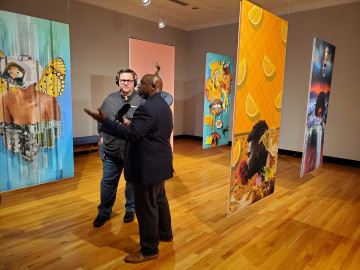
The 21st Show
Rich and Leslie Frank reflect on media, news and winemaking
Former Disney Studios executive Rich Frank and former TV news anchor/reporter Leslie Frank reflected on their careers and their generous gift to Illinois journalism students.

The 21st Show
Former Disney Studios executive Rich Frank and former TV news anchor/reporter Leslie Frank reflected on their careers and their generous gift to Illinois journalism students.

The 21st Show
Abortion rights, crime, the economy, election deniers. Domenico Montanaro talked about how those topics will factor in the 2022 Midterms.

The 217 Today Podcast
In today's deep dive, we’ll take a closer look at the race for Illinois Attorney General, where incumbent Democrat Kwame Raoul faces Republican challenger Tom DeVore.

The 21st Show
The city of Olney is proud of its multitude of albino squirrels. But are they on the verge of extinction?

The 21st Show
This year, Lesbian, Gay, Bisexual, Transgender, and Queer communities in Illinois have found themselves to be the targets of hatred.

The 217 Today Podcast
In today's deep dive, we’ll hear from both candidates running for Illinois Treasurer: incumbent Democrat Mike Frerichs and his challenger, Republican state representative Tom Demmer.

The 21st Show
We talked with the artists who created works for the “Black on Black on Black on Black" at the Krannert Art Museum.

The 217 Today Podcast
In today's deep dive, we’ll hear from Republican Thomas Lynch, who is attempting to unseat incumbent Democrat Robin Kelly in Illinois’ second congressional district.

The 21st Show
The largest concentration of Latinos in downstate Illinois is in the Quad Cities.

The 21st Show
A group is aiming to bring lawyers to rural parts of Illinois, where people can struggle to find help in court.
Campbell Hall
300 N. Goodwin
Urbana, IL 61801
217-333-7300